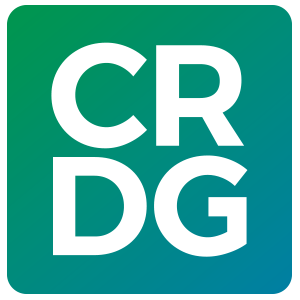
At CRDG we believe that in order to produce real change through program implementation, teachers must be provided with on-going professional development opportunities.
This list of courses reflects the kinds of teacher professional development we do, rather than a list of currently available courses. While we do run courses periodically, we also, more commonly, work with schools to provide programs of professional development that meet their specific needs. All of our programs come out of the research we conduct on various aspects of teaching and learning, assessment, and technology use. If you are interested in one of these, or would like to discuss a professional development program for your school or district, contact us to see how we can assist you.
School Internet Safety Initiative
In the School Internet Safety Initiative of the learning technologies work of CRDG, we provide support to schools about internet safety and digital citizenship issues. Below are Internet safety information sheets of the most common internet safety issues we address in our initiative.
Internet Safety Information Sheets
- Cyberbullying (pdf)
- Cyberstalking (pdf)
- Online Identity Theft (pdf)
- Online Predators (pdf)
- Phishing (pdf)
Workshops
Workshops are structured to include 2-hour introductions, 1/2 day hands-on training, and two meetings of 1/2 day sessions.
- Is Your School Modeling Digital Citizenship?
- Digital Efficacy and Teaching Pedagogy
- Cyberbullying, Piracy, Impersonation, and Sexting: A School Discussion
- Parent and Teacher Partnerships in Digital Citizenship
- Developing WISE Kids: Web and Internet Safe Educated Kids
- Your School’s AUP: Informal discussion on technology access and the law
Is Your School Modeling Digital Citizenship?
As school provide more access to technology, teachers and administrators need some help keeping up with the legal ramifications as well as behavioral issues that arise. We consider the definition of citizenship and digital citizenship, review the ISTE standards and 21st century learning guidelines, are introduced to the laws on cyberbullying, sexting, piracy and impersonation, reflect on our own school’s technology integration structure, and review strategies and resources to model digital citizenship. Audience: Administrators and Teachers, Counselors
Digital Efficacy and Teaching Pedagogy
As teachers, we strive to develop rich learning opportunities for students. Part of the current trend in education is to collaborate online and explore creative avenues in digital forums, not just for ourselves but for our students too. But, as we share documents in the cloud, expect students to create ePortfolios and other multimedia projects, collaborate with other students in chat rooms, communicate with “pen pals” oversees, and populate blogs with reflections and musings, are we using reminding ourselves and our students to practice good digital citizenship? This session covers some current technology tools used in various classrooms and makes recommendations on good practice. Time is also dedicated to teachers sharing with other teachers their successful practices. Audience: Teachers
Cyberbullying, Piracy, Impersonation, and Sexting: A School Discussion
This session shares some practical advice for school from a non-legal standpoint, increasing teacher and administrator awareness of the laws as they relate to adults and students. We consider what the ramifications are for students once they leave our safe schools environment and enter the world of college and work. Audience: Teachers and Administrators
Parent and Teacher Partnerships in Digital Citizenship
Digital citizenship is arguably more important in home environments as it is in schools. Any problems that arise are more keenly felt in a school environment when students come back together and start to share and even gossip. The purpose of this workshop is to provide schools and parents the opportunity to work together in school teams to 1) learn more about cyberbullying and sexting awareness and prevention, and 2) to work towards creating parent-school partnerships focused on cybersafety. We urge school teams to attend together so that time can be spent to draft action plans. Audience: Teachers, Administrators, Parents
Developing WISE Kids: Web and Internet Safe Educated Kids
How do we develop a child’s sense of ethics so that they are online and out of sight to be guided by teachers, parents, and other adults? Where does a school begin? In this workshop, participants are introduced to CRDG’s WISE framework and consider how it can be adopted and/or reframed are their school. The framework consists of 13 lessons, some of which are multi-day lessons, that can be incorporated into a school’s semester. Audience: Curriculum Coordinators and Teachers
Your School’s AUP: Informal discussion on technology access and the law
Every school is responsible for creating a safe learning environment, including the online learning environment. The acceptable use policy is the first place that schools look for guidance. We consider the two supreme courts cases related to the AUP and the two federal laws, CIPPA and COPA, that should guide a school’s mission for online access and work for our teachers and students. Audience: Administrators and Tech Coordinators




